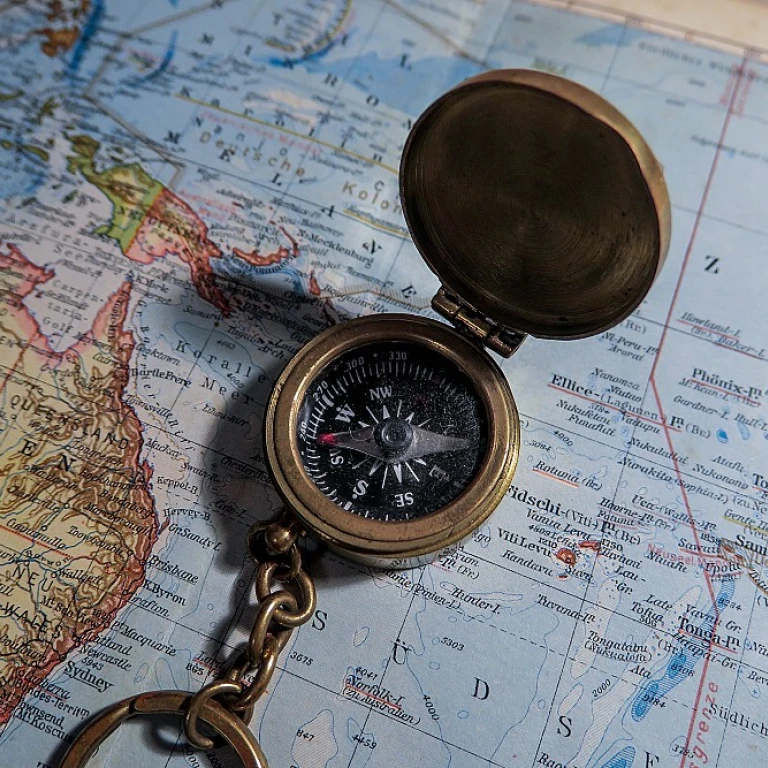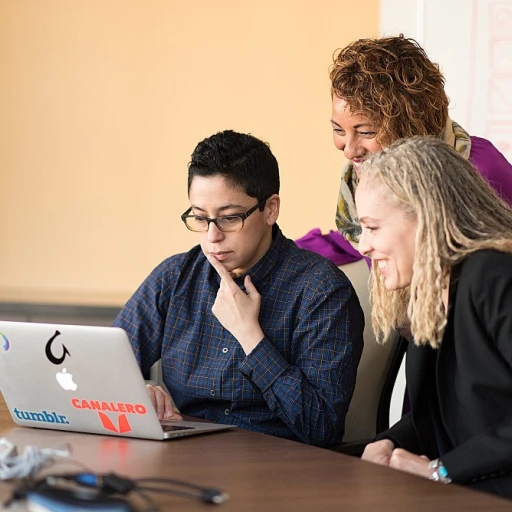The Role of AI in Modern HR Planning
The Shift in Human Resource Management
Artificial intelligence is reshaping how human resource professionals manage their duties and interact with employees. Gone are the days of labor-intensive processes and guessing games. With AI, businesses achieve smoother workflows, transforming the entire spectrum of workforce planning and resource management. AI's role extends further than mere automation of administrative tasks. It's become an invaluable tool in the hands of HR teams, driving efficiency, and yielding actionable insights for decision making. From streamlining hiring processes to tailoring performance reviews, AI nudges HR into a new era of strategic planning.Aiding Employee Performance and Experience
Employee engagement and performance management have witnessed significant boosts thanks to AI. With precise, data-driven insights, organizations now predict turnover, skills gaps, and job satisfaction levels with unprecedented accuracy. This real-time data enables leaders to tailor their human capital strategies, ensuring employee satisfaction and enhancing workplace culture. Furthermore, the tools powered by artificial intelligence are adept at monitoring employee performance and orchestrating timely interventions. By offering professional development paths and clear job descriptions, AI aids in fostering a supportive, performance-focused environment.Revolutionizing Talent Management
AI has unequivocally altered the realm of talent acquisition. Machine learning algorithms strategically sifting through large volumes of applications in no time, providing hiring teams with top matches for open positions. This technology negates unconscious bias, paving the way for a more diverse and inclusive workforce. Real-world applications exhibit the prowess of AI in managing talent. Google, for instance, employs machine learning to refine recruitment, shortening time to hire and boosting hiring accuracy. Such applications are reshaping talent acquisition, saving businesses time and resources while ensuring a perfect fit for roles. For further insights on how AI transforms human resources, you can explore enhancing HR with AI driven tools to understand its comprehensive application in modern HR strategies.Enhancing Talent Acquisition with AI
Boosting Talent Acquisition through AI Solutions
Artificial intelligence has changed the way we think about talent acquisition, and it’s all about making things smoother and quicker for professionals in human resources. When businesses rely on AI-driven tools to streamline employee hiring, they're tapping into more than just technology; they're tapping into a treasure trove of data-driven insights that can save valuable time and improve decision-making. AI works its magic by analyzing existing employee data, spotting patterns, and predicting which applicants might be the best fit based on job descriptions and desired skills. This reduces the time spent on sorting through piles of applications, allowing HR teams to focus on connecting with top talent. Machine learning takes this a step further, offering a helping hand to recruiters by customizing job ads that reach the right audience. In this way, AI not only finds the best candidates but helps retain them by ensuring they’re happy and engaged from day one.Simplifying Recruitment with Machine Learning
Imagine being able to predict with high accuracy the future performance of an employee based on data points collected during the recruitment phase. This is now a reality with AI applications like predictive analytics in recruitment. Machine learning algorithms analyze a candidate’s past performances and skills, offering a glimpse into their future contributions to your team. This tech-first approach provides HR professionals with insights into which candidates are likely to excel and meet a company’s objectives. It’s about using available data to reduce administrative tasks and make decisions that align with long-term business goals. Recruitment gets a real-time boost in efficiency that leaves HR teams meeting deadlines and avoiding the pitfall of talent mismatches. To fully understand AI's impact in shaping workforce planning, delve into this exploration on how AI tools are revolutionizing the way HR processes unfold today.AI-Driven Workforce Management
Streamlining Workforce Operations
Artificial intelligence is stepping up as a game-changer in workforce management, offering tools that streamline operations and make life easier for HR professionals. Think about the daily grind of handling employee data, managing schedules, and tracking performance. AI tools are now taking on these tasks, freeing up human resource teams to focus on strategic decision making.
One of the standout benefits of AI in this area is its ability to handle real-time data. With AI, businesses can monitor employee performance continuously, providing insights that help in making informed decisions. This means that performance reviews can become more accurate and timely, reflecting an employee's true contributions rather than just a snapshot in time.
Boosting Employee Engagement
AI is also a secret weapon for boosting employee engagement. By analyzing patterns and feedback, AI can suggest ways to improve the employee experience. Whether it's through personalized training programs or more flexible work arrangements, AI-driven insights can help create a workplace where employees feel valued and motivated.
Moreover, AI tools can assist in crafting job descriptions that attract the right talent, ensuring that new hires are a good fit for the company culture and possess the necessary skills. This aligns closely with enhancing HR with AI-driven tools, which focuses on using technology to refine talent acquisition processes.
Predictive Power for Better Management
When it comes to predictive analytics, AI is a powerful ally. By analyzing past data, AI can forecast future workforce needs, helping HR teams plan ahead. This is particularly useful in industries where demand fluctuates, allowing businesses to adjust their staffing levels accordingly. Such predictive capabilities ensure that companies are neither overstaffed nor understaffed, optimizing resources and saving costs.
In summary, AI-driven workforce management is not just about automating administrative tasks. It's about leveraging technology to enhance employee performance and engagement, while providing HR teams with the insights needed for effective decision making. For a deeper understanding of AI's role in shaping workforce planning, you might want to explore this insightful resource.
Predictive Analytics for Strategic HR Decisions
Anticipating the Future: Data-Driven Decisions
Imagine a workplace where decisions don't just rely on gut feelings but are driven by rich insights and accurate data. That's what predictive analytics brings to the table in the realm of human resources. At its core, this technology helps paint a detailed picture of the potential trajectory of employees and the workforce as a whole. Using historical and real-time data, HR professionals can anticipate the needs of their teams, whether it's identifying skill gaps or forecasting manpower requirements during peak business cycles. With these insights at their fingertips, human resource departments can craft strategic plans that align with broader business goals. Machine learning plays a pivotal role in this process. It sifts through large volumes of employee data, picking up patterns that might go unnoticed. For example, it can identify signs of employee disengagement long before it directly impacts performance, allowing management to take proactive steps.Data-Driven Talent Management Strategies
The power to predict and analyze doesn't just stop at workforce predictions. It extends to talent management, informing everything from hiring strategies to performance reviews. By leveraging artificial intelligence, HR teams can develop a more refined understanding of their talent pool, ensuring employees are in roles where they can thrive and contribute optimally. Take performance management, for example. By analyzing data on employee performance, companies can spot trends and make decisions that help improve the overall employee experience. This might involve tweaking job descriptions or introducing new training opportunities that enhance employee skills. As a result, teams remain engaged, and their performance is consistently reviewed and improved.Real-Time Insights for Enhanced Employee Engagement
Real-time analytics offer human resources the ability to make quicker, well-informed decisions, which is indispensable in today’s fast-paced business environment. Whether addressing immediate performance issues or planning future staffing needs, the ability to access up-to-date data can significantly shift how resource management is conducted. Predictive analytics also bring valuable benefits for employee engagement. By understanding where employees stand in their careers, employers can develop tailored engagement initiatives to increase satisfaction and retention. It’s a smarter approach to maintaining a healthy, motivated workforce. Incorporating predictive analytics in HR planning makes business sense. It’s about transforming raw data into actionable insights to drive decisions that positively impact both the company and its employees. This shift has marked a significant step forward in how human capital is managed.Challenges and Ethical Considerations
Balancing Innovation and Responsibility
Artificial intelligence in human resources brings incredible benefits, but it's not all sunshine and rainbows. With great power comes great responsibility, and HR professionals must tread carefully. While AI can supercharge talent management and workforce planning, it also raises ethical concerns that can't be ignored.
Data Privacy Concerns
One of the biggest worries is data privacy. AI relies on massive amounts of employee data to provide insights and drive decision making. But who owns this data? And how is it being used? Employees might feel uneasy knowing that their performance reviews, skills, and even real-time activities are being monitored. Transparency is key. Companies must clearly communicate how data is collected, stored, and used, ensuring employees are informed and comfortable with these practices.
Bias and Fairness
Another challenge is the potential for bias. AI systems learn from historical data, which might include biased decisions from the past. If not carefully managed, AI tools can perpetuate or even amplify these biases, affecting talent acquisition and employee performance evaluations. HR teams need to regularly audit AI systems, ensuring fairness and equality across the board. It's not just about using technology; it's about using it responsibly.
Human Touch in HR
While AI can handle administrative tasks and provide data-driven insights, it can't replace the human touch. Employee engagement and experience still heavily rely on personal interactions. AI can help with management tasks, but HR professionals must ensure that the human element remains a priority. Balancing technology with empathy is crucial for maintaining a positive workplace culture.
Adapting to Change
As AI continues to evolve, HR teams must stay adaptable. Embracing new tools and technologies is essential, but so is understanding their limitations. Continuous learning and development will help HR professionals keep pace with AI advancements, ensuring they can leverage these tools effectively without compromising ethical standards.
In the fast-paced world of HR, AI offers exciting possibilities. But it's essential to approach these tools with a thoughtful mindset, balancing innovation with ethical considerations. By doing so, businesses can harness the full potential of AI while safeguarding their workforce's trust and well-being.
Future Trends in AI and HR Planning
Future Prospects for AI in HR
Get ready for the future where AI continues to redefine how human resource management looks. With AI stepping up its game, HR leaders and professionals are seeing the potential to make even more informed, data-driven decisions. It's not just about using AI for operational tasks such as payroll and administrative duties anymore. AI enables professionals to dig deeper into employee metrics, delivering insights that drive human capital strategies and business growth.
Imagine teams of dedicated employees achieving greater job satisfaction and engagement thanks to AI. How? By transforming performance reviews and sharpening talent management insights. Real-time data gives HR professionals the tools to tailor employee experiences that boost morale and enhance skills development.
AI's Growing Influence
AI, with its continued evolution, promises a world where workforce planning can be done with greater precision. The technology will serve as a helpful companion in assessing talent acquisition needs, understanding employee performance, and preparing for future HR challenges. Whether it's predicting skills shortages or enhancing employee engagement, AI is here to help in ways we can only begin to imagine now.
The integration of predictive analytics will enrich strategic HR decisions, leading to more effective workforce management. In the future, expect to see AI being used creatively in customizing job descriptions, fine-tuning performance management, and improving decision-making processes.
Potential Challenges Ahead
However, we need a reality check. There will be hurdles, and the road ahead might not always be smooth. Ethical concerns—such as data privacy and unbiased AI—need our immediate attention. HR teams must stay vigilant to ensure AI’s usage is not only effective but also ethical, respecting employee privacy while maximizing performance.
In this fast-paced world, balancing the benefits with ethical considerations remains crucial for organizations seeking to employ AI in their HR suite. The message is clear: stay informed, stay engaged, and ensure ethical guidelines are followed. This proactive engagement with AI will not only enhance existing strategies but also pave the way for innovation and improved employee experiences in the long run.






